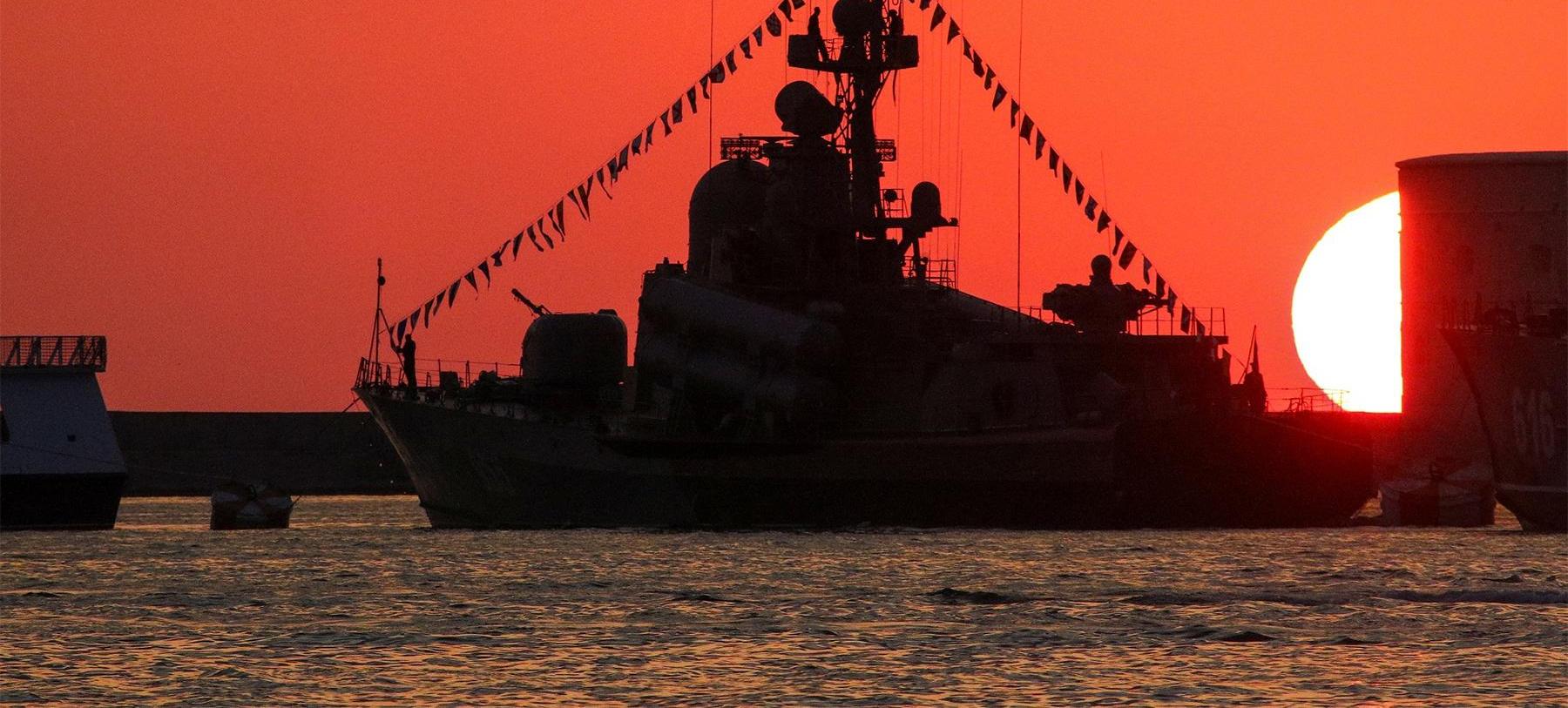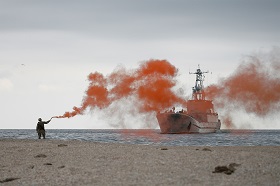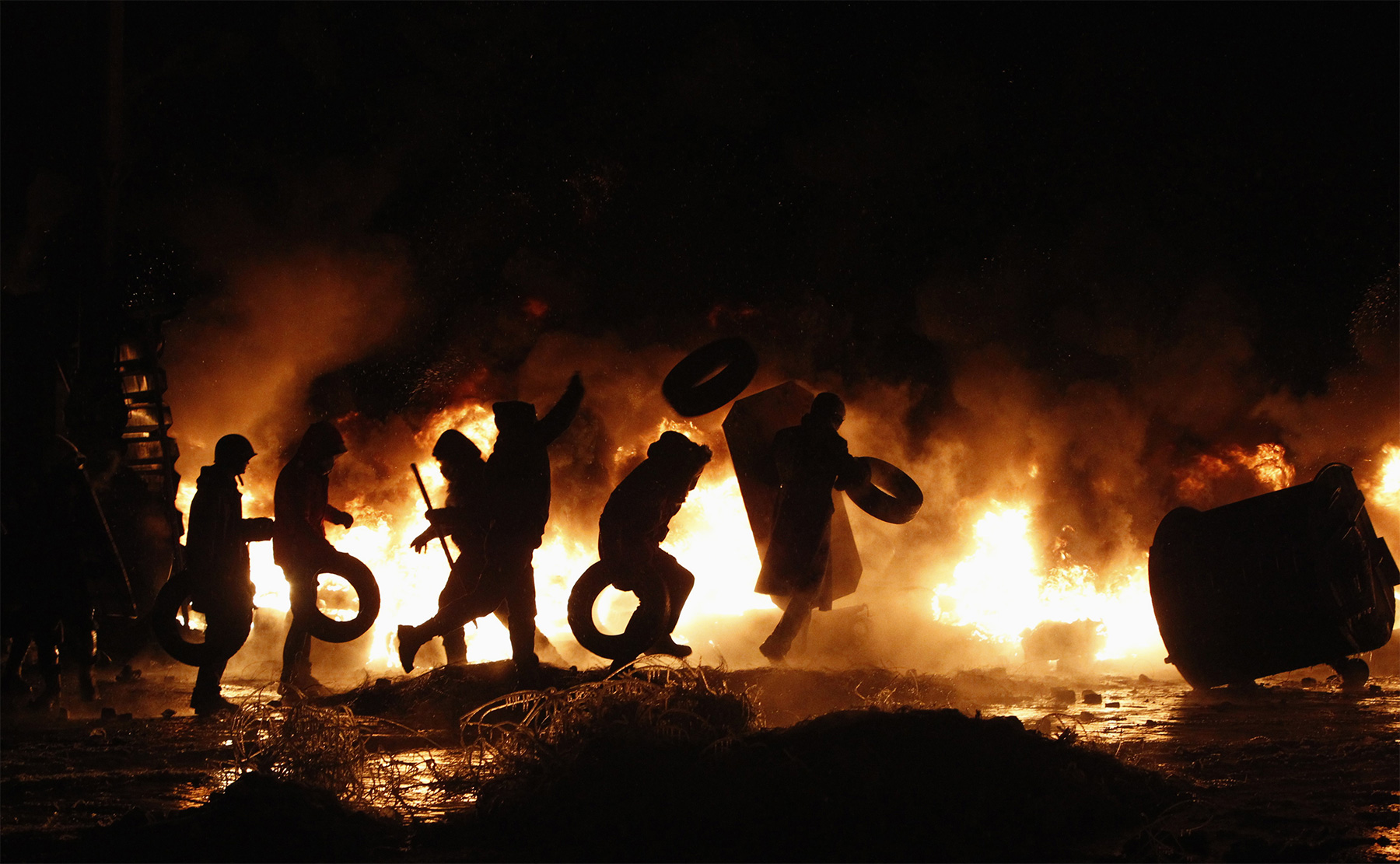This year will mark the sixth anniversary of Crimea’s reunification with Russia. It will also mark six years of an all-out American embargo on the peninsula that effectively punishes Crimeans for the crime of exercising democracy.
Crimea is arguably the origin story for the US and Russia’s turn towards hostility in recent years, but it is also a story that is largely misunderstood and grossly misrepresented to the American public. The American media, for its part, has consistently mischaracterized the situation surrounding Crimea and ignored the agency of the Crimean people by fabricating a narrative that the 2014 referendum was held at gunpoint, that Crimeans had no choice in the matter.
For example, if Crimea is Ukraine, then why did the Ukrainian government order the full withdrawal of all of its armed forces from Crimea just days after the referendum? Why did more than 75,000 Crimeans
apply for Russian passports immediately after the referendum? Why did Crimeans vote in the Russian presidential elections, but not in last month’s Ukrainian presidential elections? Why is the Russian government paying pensions in Crimea and not the Ukrainian government?
Answers to such questions reveal the reality — the reality that Crimea has fully integrated with Russia and that Crimeans have done so by their own volition. More damningly, such answers expose current American foreign policy to be dangerously out of touch with reality. But again, it doesn’t have to be that way.
For those who value democracy and care about its message, for those who value policy based on principles and reality — there is a remedy and it starts with consistency. It starts with embracing democracy in any and all cases, including Crimea. That means officially recognizing the Crimean Referendum and lifting the devastating sanctions that punish ordinary people in Crimea for the crime of exercising democracy. If recognizing the original referendum is a bridge too far, then the United States can at the very least advocate for a second referendum that can be internationally recognized.
That will demonstrate a
commitment to democracy, a consistent message to the world, and a monumental
step towards lasting peace.
This year will mark the sixth anniversary of Crimea’s reunification with Russia. It will also mark six years of an all-out American embargo on the peninsula that effectively punishes Crimeans for the crime of exercising democracy.
Crimea is arguably the origin story for the US and Russia’s turn towards hostility in recent years, but it is also a story that is largely misunderstood and grossly misrepresented to the American public. The American media, for its part, has consistently mischaracterized the situation surrounding Crimea and ignored the agency of the Crimean people by fabricating a narrative that the 2014 referendum was held at gunpoint, that Crimeans had no choice in the matter.
That, of course, is not true. All of the evidence regarding how Crimeans view the referendum points to the contrary. Polls before, during, and after the referendum show that an overwhelming majority of people living in Crimea prefer to be part of Russia. Even the most recent poll from 2019 shows that 89% of Crimeans support Crimea’s reunification with Russia and would vote again to reunite with Russia if another referendum was held today. Unfortunately, most Americans do not know this. Crimea’s version of events has been totally blacklisted from mainstream media coverage. For this reason, most Americans are unaware of how the US government’s policy towards Crimea is diametrically opposed to Americans’ purported values of democracy and self-determination.
Instead of being a force for good and striving for conflict resolution, America’s current policy towards Crimea targets ordinary, innocent people with a blanket embargo which is as strategically flawed as it is useless. Whatever the intentions are, it is clear that Crimeans are not being persuaded to embrace Washington’s vision for their future. After six years, Crimea has become more integrated into Russia than ever before.
But if you are tuning in for the first time or have simply never heard the other side of this story, then the reasons to #RecognizeCrimea may be unclear. So here are the reasons why it is time to #RecognizeCrimea as a part of Russia and reunite American foreign policy with American democratic values:
Reason #1: Voter Disenfranchisement
To understand Crimea and its relationship to democracy, it requires a bit of background.
In 2014, Ukrainian President Viktor Yanukovych was removed from office by what amounted to a bloodless coup. This political upheaval sent shock waves throughout Ukraine and the rest of the world. Instead of following the impeachment process and rule of law outlined in the Constitution of Ukraine, which would have involved formally charging Yanukovych with a crime, a review of the charge by the Constitutional Court of Ukraine, and a three-fourths majority vote in favor of impeachment — the Ukrainian parliament bypassed the constitution and implemented a new provisional government that was neither democratically elected nor legitimate by traditional standards.
In doing so, more than 12 million people and more than 80% of Crimeans who voted for Yanukovych were essentially disenfranchised and their votes nullified. By foregoing the rules of impeachment laid out in the Ukrainian constitution, the ouster of President Yanukovych gave legitimate grievance for those in Crimea who felt their right to self-determination was violated. This situation communicated to many Crimeans that their will and concerns were disregarded and neglected.
Reason #2: An Accurate Referendum
This led Crimeans to independently organize a referendum on Crimea’s status; a referendum that we have sufficient evidence to conclude was free, fair, and representative of what Crimeans want.
Now this notion runs counter to what most Americans think they know about that referendum. For years, Americans have been sold and told that the Crimean Referendum was a vote held at gunpoint and that Crimeans had no real choice in the matter. However, evidence and testimony tell a remarkably different story.
In terms of evidence, we have at least three key reasons to conclude that the “held at gunpoint” narrative is more fiction than fact.
First, multiple polls conducted by the United Nations Development Program (UNDP) between 2009 and 2011 show that a majority of Crimeans favored reunifying with Russia well before the 2014 referendum.
Second, two Gallup Poll studies that were conducted shortly after the referendum found that Crimeans themselves regard the referendum as fair and accurate. One found that 82% of Crimeans believe “the referendum reflects most Crimeans’ views.” The other post-referendum Gallup Poll found that 91% of Crimeans felt the referendum was free and fair, and that 88% felt the referendum should be recognized.
Third, by all indications, Crimeans seem satisfied with the move. As mentioned earlier, 89% of Crimeans still support reunification and would vote again to reunite with Russia as of 2019.
In addition, the polling data matches the outcome we would reasonably assume based on Crimea’s demographics.
A common misconception regarding the fall of the Soviet Union is that the post-Soviet countries that superseded the USSR disintegrated into the perfect puzzle piece-shaped countries that separated Georgians, Ukrainians, Kazakhs, et cetera, from everyone else. Unfortunately, that was not the case. The Soviet Union was a multinational canvas of ethnic groups with pockets of different people scattered across the map. Crimea was and is no exception. Although Ukraine is ethnically around 78% Ukrainian — Crimea, on the other hand, is quite the opposite. In fact, around 67% of Crimeans are ethnically Russian and Russian is the primary language spoken at home for around 85% of Crimeans.
This demographic reality lends further credence to the Crimean Referendum and its legitimacy. The share of ethnic Russians and primary Russian-speakers among Crimeans parallels the prior polling data and allows us to reasonably assume that most Crimeans would prefer reunification with Russia given the choice. That is, people generally want to be governed by and associated with people that share their language, culture, and interests. Thus, it is not surprising that Russians and Russian-speaking individuals would prefer to be under the jurisdiction of Russia, especially when they continue to be marginalized by discriminatory language laws, disenfranchisement (see above), and political targeting in Ukraine.
Last but not least, even eyewitness testimonies contradict the “held at gunpoint” narrative and instead corroborate the idea that the Crimean Referendum was indeed trustworthy. 135 international observers from 23 countries across the world arrived in Crimea to monitor the referendum. Among those international observers were international law experts, human rights activists, and members of the European Union parliament, all of which unanimously maintain that they saw no signs of coercion or military presence during the referendum.
Reason #3: The Legal Argument
So with that out of the way, the next argument to assess concerns legality.
In this regard, Crimea’s referendum seems to pass the litmus test of legality. As case in point, to justify the referendum, the Supreme Council of Crimea appealed to the United Nations Charter, which unequivocally speaks to the right of self-determination. Incidentally, when Ukraine seceded from the USSR, it appealed to that same justification almost word for word and in a similar procedural fashion. It raises the following question: why is it acceptable for Ukraine to exercise this right, but not acceptable for Crimea?
Beyond that, the International Court of Justice extended that precedence in an advisory opinion on Kosovo that ruled “international law contains no applicable prohibition” against declarations of independence. The Supreme Council of Crimea and Sevastopol City Council followed that exact precedence by declaring independence from Ukraine and requesting to join the Russian Federation after the referendum in that order.
So if the precedence set by international law applies to the cases of Kosovo and Ukraine, then it certainly applies to the case of Crimea.
Reason #4: Houston, We Have a Messaging Problem
Of course, this all culminates into a deeply-rooted messaging problem for the United States. Despite the voluminous lip service to democracy on a daily basis— the United States and its allies have consistently communicated a position on Crimea that is categorically undemocratic. That rather undemocratic position to Crimea’s democratic referendum has come in the form of sanctions against Russia, and more appallingly — sanctions that specifically target Crimea and the Crimean people.
Just months after the referendum in 2014, President Barack Obama issued Executive Order 13685 which prohibits investment, importation, and exportation to and from Crimea in what essentially amounts to a complete embargo on the peninsula. The message could not be clearer. What those sanctions do is emblematically and fundamentally to put a condition on democracy, that a “democratic gesture is only legitimate if we like the outcome.” Those sanctions punish Crimeans for the crime of exercising democracy, something which seems so diametrically opposed to America’s purported commitment to upholding democracy.
But is that the message the United States really wants to send?
One would think not, but that is precisely the message that politicians, thought leaders, and those in the Washington establishment have expressed for the past six years. They have cast aspersions on the referendum, arguing that it was rushed and illegitimate without international observance. But even if one grants that those are legitimate criticisms (spoiler: they’re not), why hasn’t the United States or other “leading democracies” advocated for a second referendum — one that could be internationally monitored and recognized? Why hasn’t a second referendum even been up for discussion?
The answer is simple. “Democracy” has lost its touch. It has been dissolved of meaning, becoming nothing more than a buzzword that Western countries employ as a tool of realism when it is convenient. The word no longer espouses sincerity, consistency, or even the sacrosanctity its most fervent televangelists verbally bestow it. But that does not have to be the case.
Reason # 5: Policy Should Be Based on Reality
Last year, United States Secretary of State, Mike Pompeo, surprised the world with his announcement that the United States would now recognize Israel’s sovereignty over the Golan Heights. Pompeo justified the move in tactfully sagacious fashion by stating on Twitter that: “The Trump administration sees the world as it is, not as we wish it would be. Basing policy on reality, we recognized Jerusalem as Israel’s capital [and] Israel’s sovereignty over the Golan Heights.”
Unfortunately, this embrace of reality only goes so far at the present moment. While the United States is happy to embrace reality for Israel’s sake, it seems to take cognitive exception to Russia. This, again, is a failure of consistency. That is, if followed to its logical conclusion, the Trump administration’s newfound logic of pragmatism would seem to imply that the United State would be willing and ready to recognize Russia’s sovereignty over Crimea — since that would be “basing policy on reality.” But that’s not the United States’ policy.
Instead, the United States’ policy is to repeat the fictive and banal notion that “Crimea is Ukraine” in the face of all the realities that suggest otherwise. This position might be politically tenable, but it’s not intellectually or objectively reasonable. It is a position that is impuissant to scrutiny.
For example, if Crimea is Ukraine, then why did the Ukrainian government order the full withdrawal of all of its armed forces from Crimea just days after the referendum? Why did more than 75,000 Crimeans apply for Russian passports immediately after the referendum? Why did Crimeans vote in the Russian presidential elections, but not in last month’s Ukrainian presidential elections? Why is the Russian government paying pensions in Crimea and not the Ukrainian government?
Answers to such questions reveal the reality — the reality that Crimea has fully integrated with Russia and that Crimeans have done so by their own volition. More damningly, such answers expose current American foreign policy to be dangerously out of touch with reality. But again, it doesn’t have to be that way.
For those who value democracy and care about its message, for those who value policy based on principles and reality — there is a remedy and it starts with consistency. It starts with embracing democracy in any and all cases, including Crimea. That means officially recognizing the Crimean Referendum and lifting the devastating sanctions that punish ordinary people in Crimea for the crime of exercising democracy. If recognizing the original referendum is a bridge too far, then the United States can at the very least advocate for a second referendum that can be internationally recognized.
That will demonstrate a commitment to democracy, a consistent message to the world, and a monumental step towards lasting peace.








